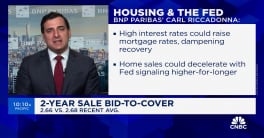Sure, you took out your mortgage with every intention of being a responsible
homeowner, making all payments on time, keeping your homeowner's insurance
current and your taxes paid.
Still, stuff happens. People lose jobs, become temporarily disabled, incur
unexpected medical expenses or have to make a choice between paying the mortgage
or repairing the car that gets them to the job that pays that mortgage. Perhaps
the classic decision is whether to keep the roof over one's head or repair
the leak that threatens to bring it crashing down.
Hopefully you will never be confronted with the reality of defaulting on your home mortgage, but should it happen, a little knowledge can actually be a very good thing.
Mortgage notes usually carry a grace period, 15 days is typical but some are as short as 10 days. Many people "play the float" that is, delay through most of the grace period before making payment, and no one, including the lender thinks very much about it. On day 16, however, a late fee is assessed. At this point there are no ramifications beyond that late fee and maybe a "friendly reminder" call from the lender's customer service department. The late payment probably won't even show up on the borrower's credit report. On Day 30 that changes. At that point the borrower is in default and things quickly turn serious.
Laws regarding mortgage default and foreclosure differ from state to state and mortgage lenders and servicing companies vary in the way they approach delinquent borrowers. The big mortgage gatekeepers such as Freddie Mac, FHA and the VA have changed their approach to managing delinquencies in the last ten years, having finally realized that it is more cost effective to help a borrower to stay in his home than to pursue foreclosure and then confront the need to deal with owning, managing, and selling the resulting real estate. Consequently, there are probably a hundred different scenarios that can play out as a mortgage delinquency progresses and at least that many ways a borrower can deal with his default problems. All we can do is talk about some of the possibilities and some of the options.
Starting on day 16, additional debt is incurred in the form of the mortgage late fee - usually a percentage of the principal balance; three percent is typical which, on a $300,000 mortgage is plus or minus a $100 penalty and, if the next payment and the next are also missed, the cost of bringing the mortgage current grows pretty fast. Past day 30, some lenders will allow a borrower to make a partial payment of the past due amount; others will insist that everything be brought current; lenders may even return a check if it does not cover both the current and the past due payments and maybe the late charges as well.
By day 45 the phone calls from the mortgage collectors will be coming pretty regularly. Most states have rules regarding collection activities and telephone calls including their frequency, content (no threats are permitted), and timing (early morning and late night calls are generally off limits,) but the calls, within legal boundaries, will be unremitting and the tone can vary from "gee, we just want to help" to aggressively demanding.
About 60 to 90 days after the initial missed payment the lender will send a notice of default, usually by Certified Mail, giving the borrower a finite period in which to cure the situation by paying all past due amounts, and by now collection costs are probably being added to the late fees. Once that remedial period passes, the collection department will refer the loan to the lender's legal department which will, after another period of time, send the documents to a local attorney to begin foreclosure proceedings. By this time serious legal fees are accruing.
A foreclosure is a legal event and there are benchmarks that must be met. Once the case is turned over to attorneys, the impending foreclosure must be advertised, usually in both the local papers and in the largest and closest metropolitan daily. The entire process can take a very long time from initial default to the actual public auction of the property. If a member of the military is an owner of the property, there are additional safeguards required by federal and in some cases state laws From the beginning of the process, however, the meter is running. The longer the foreclosure takes, the greater the debt that accrues and the larger the liability the homeowner has, something that will become critical down the road.
The law in most states gives the homeowner every opportunity to stop the process leading to foreclosure, right up to the minute that the auctioneer's gavel comes down and sometimes even beyond. In some states there is a period after the foreclosure during which the homeowner can redeem the property (right of redemption.). It is important to know this because less than ethical lenders and servicing companies will tell borrowers that, once default has occurred, the acceleration clause of the mortgage is invoked and the entire mortgage balance is due and payable - in other words, if a borrower misses his $1,200 payment for several months and now owes $3,600 plus late fees and legal expenses, he must come up with the entire $150,000 mortgage balance in order to stop the foreclosure. This may be technically true but it is rarely invoked in practice.
The actual foreclosure auction might be conducted in the front yard of the
subject property or "by public outcry" on the front steps of the
county courthouse. Either way it is pretty frightening for the homeowner involved.
There are lots of ways, however, to put a halt to the process and to save one's
home. We will explore this at another time.
**TEXTAD(1|Find|here.)**







